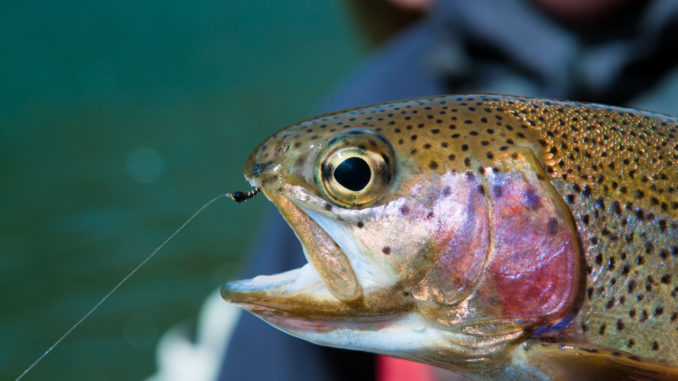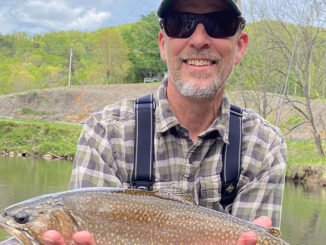
Stocking suspended until hatchery populations are declared disease-free
Whirling disease, a disorder affecting trout, has been confirmed in rainbow trout collected from Watauga River near Foscoe in Watauga County — the first occurrence of the disease in North Carolina – and the N.C. Wildlife Resources Commission has suspended stocking fish raised at its three cold-water hatcheries until it can confirm that those populations are free of the disease.
Whirling disease affects fish in the trout and salmon family with rainbow and brook trout, two species found in North Carolina waters, being the most susceptible. The disease, caused by the microscopic parasite Myxobolus cerebralis, damages cartilage and skeletal tissue in a fish, causing it to swim in a whirling motion. While often fatal to juvenile fish, the disease does not infect humans or pets, and eating an infected fish is not known to cause any harmful effects.
Since its discovery in 1956 in Pennsylvania, whirling disease has been confirmed in other states, with varying degrees of severity. In Montana and Colorado, its impact on trout populations has been pronounced.
The infected trout were collected from a section of the river well upstream of public trout-stocking locations. Still, the Commission will not stock fish until a laboratory at Auburn University tests fish currently being collected and declares them disease-free.
“So far, we have no indications that trout at any of our hatcheries are infected with whirling disease, but we are being extra cautious and having fish tested before we resume stockings,” said Doug Besler, a fisheries biologist for the Commission. “We hope to have test results back within the next few weeks, and once we rule out whirling disease infection at our production facilities, we will resume planned trout stocking operations.”
Commission staff will also collect trout from the Watauga River and tributary streams to test for whirling disease and to determine its distribution in the watershed. In addition, Commission staff is working closely with N.C. Department of Agriculture and Consumer Services and N.C. State University to sample commercial aquaculture operations in the area where the infected trout were found.
The Commission encourages the public to help prevent the spread of the parasite that causes whirling disease by cleaning and drying equipment, clothing, or anything else that comes into contact with water. In addition, no one should move live fish or aquatic wildlife from one body of water to another without first obtaining a permit from the Commission. Anglers are asked to contact the Commission if they observe deformities, strange swimming behaviors, or other signs of disease in trout.




Be the first to comment